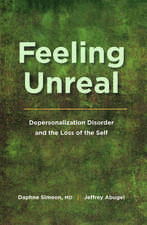Aging 2000: Our Health Care Destiny: Volume II: Psychosocial and Policy Issues
Editat de Charles M. Gaitz, G. Niederehe, N.L. Wilsonen Limba Engleză Paperback – 30 iun 2012
Preț: 722.84 lei
Preț vechi: 760.88 lei
-5% Nou
Puncte Express: 1084
Preț estimativ în valută:
138.34€ • 143.33$ • 115.45£
138.34€ • 143.33$ • 115.45£
Carte tipărită la comandă
Livrare economică 21 martie-04 aprilie
Preluare comenzi: 021 569.72.76
Specificații
ISBN-13: 9781461295464
ISBN-10: 1461295467
Pagini: 428
Ilustrații: 395 p.
Dimensiuni: 155 x 235 x 22 mm
Greutate: 0.59 kg
Ediția:Softcover reprint of the original 1st ed. 1985
Editura: Springer
Colecția Springer
Locul publicării:New York, NY, United States
ISBN-10: 1461295467
Pagini: 428
Ilustrații: 395 p.
Dimensiuni: 155 x 235 x 22 mm
Greutate: 0.59 kg
Ediția:Softcover reprint of the original 1st ed. 1985
Editura: Springer
Colecția Springer
Locul publicării:New York, NY, United States
Public țintă
ResearchDescriere
The seventeenth annual symposium sponsored by the Texas Research Institute of Mental Sciences was held October 23-26, 1983, in Houston, Texas. The theme was Aging 2000: Our Health Care Destiny. This volume on social, psychological, economic, and ethical aspects and a companion volume (Volume I) on biomedical aspects include edited versions of the presentations by about 80 speakers. Their papers were directed at practitioners, researchers, and medical educators who will be active and productive in the year 2000, and we focused on those who would influence the evolution of care of elderly persons during the next 17 years. We chose topics that would be of particular interest to teachers and current planners in the disciplines concerned with delivery of health and social services. We believe that having a core of more qualified and better trained practitioners will help the population of aged persons achieve a higher level of physical and mental health, life satisfaction and happiness, find better coping techniques and control of environmental stresses, and attain personal and social goals. Our Goals While preparing for the symposium we knew that the status ofthe art in 1983 obviously would be the base from which we would work, but we asked our speakers to give priority to future planning and directions.
Cuprins
for Volume II.- I. Overview.- 1. Health Care of the Aging: Trends, Dilemmas, and Prospects for the Year 2000.- 2. Future Society’s Outlook Toward Aging, Illness, and Health Care of the Aged.- 3. Morbidity, Disability, and Mortality: The Aging Connection.- II. Health and Changing Concepts of the Life Cycle.- 4. The Aged as Pioneers in Time: On Temporal Discontinuities, Biographical Closure, and the Medicalization of Old Age.- 5. Loss and the Social Psychology of Aging.- 6. Longitudinal Stability of Personality and Its Relation to Health Perceptions.- III. Working and Health: Emerging Trends.- 7. A Developmental Perspective on Career-Change Options for Older Workers.- 8. Trends in Assessing and Accommodating the Health of Older Workers.- 9. Retirement and Work: Now and the Future.- IV. Future Directions in Cognitive Assessments of the Aged.- 10. Cognitive Assessment in the Year 2000.- 11. Dual-Task Assessment of Attentional Capacities in Aging and Dementia.- V. Health Care and Physical Environments of the Aged.- 12. The Social and Physical Aspects of Housing and Aging: A U.S. Perspective.- 13. Emerging Technologies Supporting Independence Among Infirm Elderly.- 14. A Theoretical View of the Person in a Health-Care Environment.- VI. Social Supports and the Health of the Future Aged.- 15. The Informal Support System and Health of the Future Aged.- 16. The Function, Form, and Future of Formal Services.- VII. Delivery of Care for the Aged in a State Mental Health and Mental Retardation System.- 17. Caring for the Aged in a State Mental Health and Mental Retardation System.- 18. The Impact of Technology on the Delivery of Mental Retardation Services in the Year 2000: A Research Perspective.- 19. A Behavioral-Programming Approach to Treatment of the Institutionalized Aged.- 20. The Impact of a Dementing Illness on Relatives: The Need for Family Support Groups.- VIII. Rehabilitation with the Future Aged.- 21. Is Rehabilitation a Legitimate Intervention for the Elderly? Goals and Expectations.- 22. Medical Rehabilitation: Predicting Needs and Measuring Outcomes for Quality of Life.- IX. Long-Term-Care System for Future Elders.- 23. Meeting Long-Term-Care Needs: Efficacy, Efficiency, and Affordability.- 24. Needs, Wants, and Preferences: Can a Long-Term-Care System Respond?.- 25. Beyond Institutional Long-Term Care: The Community Care System.- 26. Facility-Based Services: Strengthening Used and Useful Capacity.- X. Future Financing of Health Care.- 27. The Economics of Aging: Doomsday or Shangri-La?.- 28. Financing Health Care for the Elderly in 2000: Issues, Mechanisms, and Directions.- 29. The Future Financing of Long-Term Care for Older Persons.- XI. Legal and Ethical Concerns in Care of the Aged.- 30. The Interaction Between Ethics and Economics in Planning Health Care for the Aged.- 31. Evolutionary Changes in Legal Remedies for the Impaired Elderly.- 32. Micro- and Macroethical Aspects of Caring for the Aged.- XII. Concluding Visions.- 33. Aging, Meaning, and Well-Being: Musings of a Cultural Historian.- 34. Tomorrow and Tomorrow and Tomorrow: Toward Squaring the Suffering Curve.- 35. Health Care in the 21st Century: The Social and Ethical Context.














